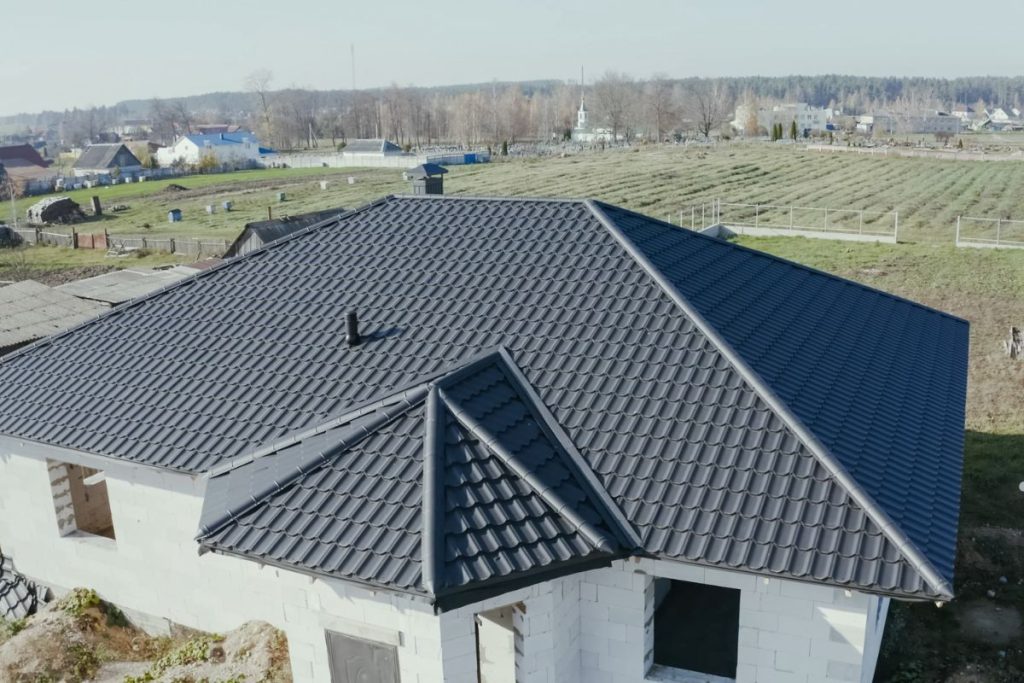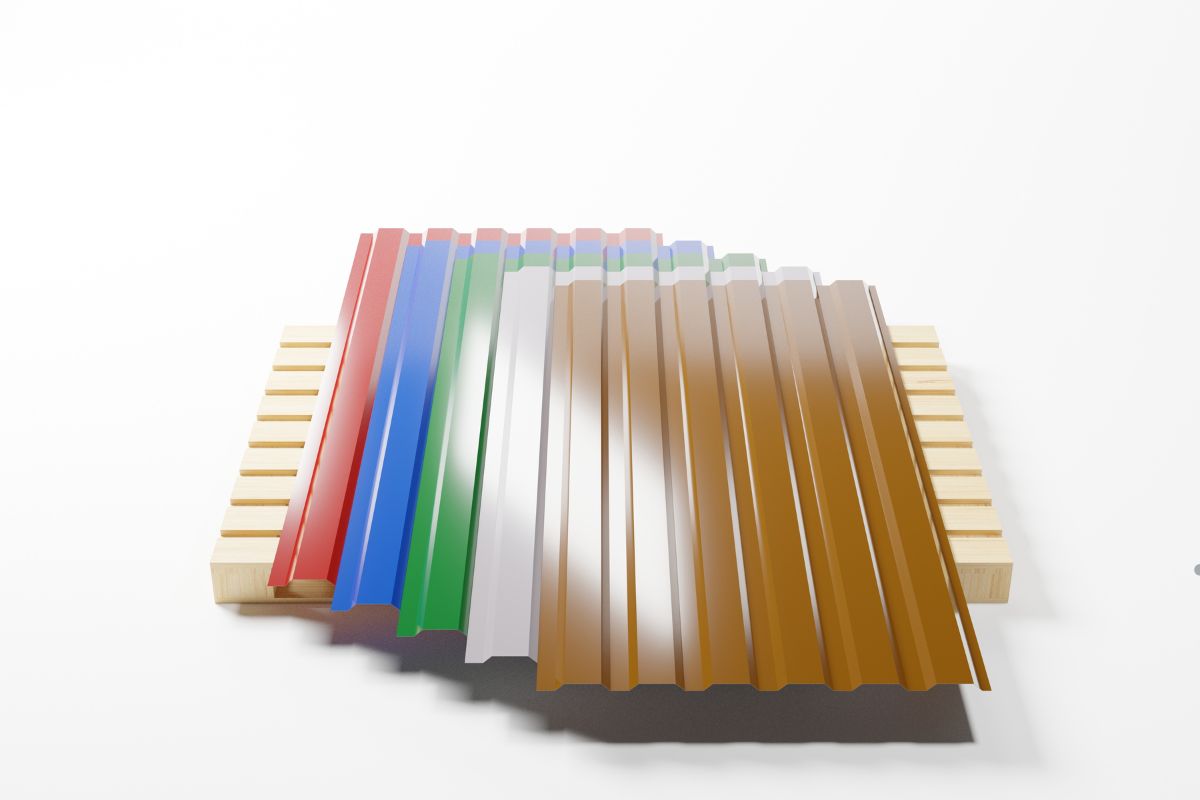
Corrugated metal roofing offers a compelling blend of durability, affordability, and longevity, making it an attractive option for many US homeowners. But is it the right choice for your home? This comprehensive guide will delve into the advantages, disadvantages, materials, costs, installation considerations, and maintenance of corrugated metal roofing, empowering you to make an informed decision.
What is Corrugated Metal Roofing?
Corrugated metal roofing is characterized by its distinctive wavy or rippled pattern. This pattern isn’t just for aesthetics; it significantly increases the strength and rigidity of the metal sheets. Typically made from steel, aluminum, or alloys of these, corrugated metal is a popular choice for residential, commercial, and agricultural buildings. Its lightweight nature and ease of installation make it a versatile roofing solution.
Our services include expert roofing installation, repair, and maintenance. Learn more here.
Advantages of Choosing Corrugated Metal

Corrugated metal roofing boasts a number of significant benefits:
- Durability and Longevity: A properly installed corrugated metal roof can last for 40-70 years or even longer with proper maintenance. This lifespan far exceeds many other roofing materials.
- Cost-Effectiveness: While the initial cost might be comparable to some other roofing materials, the extended lifespan of corrugated metal often results in lower long-term costs.
- Lightweight: Corrugated metal is significantly lighter than tile or concrete roofing, reducing the structural load on your home.
- Eco-Friendly: Metal roofing is often made from recycled materials and is fully recyclable at the end of its lifespan, making it an environmentally responsible choice. Look for roofing made from recycled materials to reduce the environmental impact.
- Fire Resistance: Metal roofing is non-combustible and provides excellent fire protection for your home.
- Easy Installation (Potential): While professional installation is always recommended, corrugated metal’s lightweight and modular design can simplify the installation process compared to more complex roofing systems.
Looking for reliable and affordable roofing services? We offer expert installation, repair, and maintenance for long-lasting protection. Call us today for a free consultation and get the best roofing solution for your home!
Disadvantages and Limitations
While corrugated metal roofing offers numerous advantages, it’s important to acknowledge potential drawbacks:
- Noise Concerns: Metal roofs can be noisier than other roofing materials, especially during rainstorms. This is very common when dealing with bad quality roofing materials. Adding proper insulation can mitigate noise.
- Potential for Dents: While durable, corrugated metal can be susceptible to dents from hail or falling debris.
- Insulation Needs: Metal conducts heat and cold readily. Adequate insulation is crucial for maintaining energy efficiency.
- Aesthetic Limitations (Subjective): While corrugated metal has a modern appeal, its industrial look might not appeal to all homeowners.
- Maintenance: While low-maintenance, metal roofs still require periodic inspections and cleaning to remove debris and prevent corrosion.
Types of Corrugated Metal Roofing Materials
The type of metal used significantly impacts the performance and appearance of your corrugated roof:
- Steel Corrugated Roofing: A common and cost-effective choice, steel is typically coated with protective layers to prevent rust.
- Aluminum Corrugated Roofing: Aluminum is lightweight and highly resistant to corrosion, making it ideal for coastal environments.
- Galvanized Steel Corrugated Roofing: Steel coated with zinc for rust protection. Galvanization makes corrugated steel roofing resistant to corrosion.
- Galvalume Steel Corrugated Roofing: Steel coated with a combination of aluminum and zinc, offering superior corrosion resistance compared to galvanized steel.
Considering corrugated metal roofing for your home? Our comprehensive guide covers everything you need to know! For expert advice and professional installation, call us now and get the best roofing solution for your home!
Corrugated Metal Roofing Installation

Installing corrugated metal roofing requires careful planning and execution:
- DIY vs. Professional Installation: While some homeowners may attempt DIY installation, professional installation is strongly recommended. Roofing requires specialized skills and knowledge to ensure proper sealing, fastening, and safety.
- Step-by-Step Overview (Brief): The installation process typically involves preparing the roof deck, installing underlayment, cutting and fastening the metal sheets, and sealing all seams and fasteners.
- Important Safety Precautions: Working on a roof can be dangerous. Always use appropriate safety equipment, including harnesses, safety shoes, and eye protection.
Regular roof maintenance ensures durability and longevity. Learn more here.
Cost of Corrugated Metal Roofing
The cost of corrugated metal roofing can vary depending on several factors:
- Factors Affecting Cost: Material type, roof size, complexity of the roof design, and labor costs all influence the final price.
- Material Costs: Aluminum is generally more expensive than steel. The specific alloy and thickness of the metal also affect material costs.
- Installation Costs: Labor costs vary depending on the location and the experience of the roofing contractor.
- Long-Term Cost Savings: While the initial investment might be higher than some other roofing options, the long lifespan and low maintenance requirements of corrugated metal can result in significant long-term savings.
Corrugated Metal Roofing Maintenance and Care
Proper maintenance is essential for maximizing the lifespan of your corrugated metal roof:
- Regular Inspections: Inspect your roof at least twice a year for signs of damage, such as dents, corrosion, or loose fasteners.
- Cleaning and Debris Removal: Remove leaves, branches, and other debris regularly to prevent moisture buildup and corrosion.
- Repairing Damage: Address any damage promptly to prevent further deterioration.
Is Corrugated Metal Roofing Right for You?
Corrugated metal roofing is an excellent choice for homeowners seeking a durable, long-lasting, and eco-friendly roofing solution. However, it’s important to consider the potential drawbacks, such as noise and potential for dents. By carefully weighing the pros and cons and selecting the right materials and installation professionals, you can enjoy the many benefits of a corrugated metal roof for years to come.
Frequently Asked Questions
How long does corrugated metal roofing last?
A properly installed and maintained corrugated metal roof can last 40-70 years or longer.
Is corrugated metal roofing noisy?
Metal roofs can be noisier than other roofing materials, but proper insulation can significantly reduce noise transmission.
Does corrugated metal roofing increase home value?
A durable and aesthetically pleasing corrugated metal roof can increase your home’s value.
Can I paint my corrugated metal roof?
Yes, you can paint your corrugated metal roof with a paint specifically designed for metal surfaces.
What is the warranty on corrugated metal roofing?
Warranty varies depending on the material manufacturer and installer. Inquire for warranty details before buying.
Upgrade your home with durable, affordable, and long-lasting roofing solutions! Our expert team provides top-quality installation and maintenance. Contact us today for a free consultation and estimate.
